
How can it be so hard to help a baby sleep?
I mean, babies are meant to sleep. It's the most natural thing in the world for babies to sleep. But so many of us struggle as parents to help our newborn baby fall sleep and stay asleep through the night.
And then we drive ourselves crazy trying complicated sleep training programmes and sleep schedules and crazier still hopping from one baby sleep guru's training schedule to another in the hope that something - please Lord something - will get them, and us, some shut eye!!
But in all the noise about which baby sleep method or training schedule is right we lose touch with the very simple sleep tips that are actually the most powerful ways to help our baby sleep easily and naturally.
The baby sleep tips I have for you here, are as old as the hills - there's not a sleep training app or fancy schedule in sight - but they really truly work I promise you because they are based on the biology of how all animals sleep.
I have broken the advice into 12 different tips but if you are utterly exhausted just read the first three tips and especially tip three. Together they truly are life changing for babies and parents.
I really hope they help. Do let me know how you get on.
And for more simple practical help that really works do check out my other baby and parenting tips.
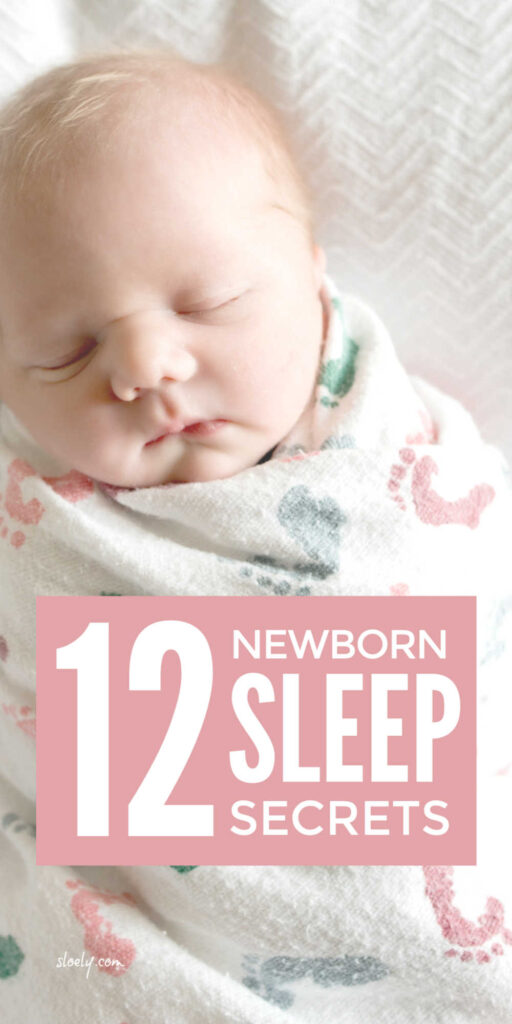
12 Must Know Baby Sleep Tips
1. Sleep When Baby Sleeps
This sleep tip truly is numero uno.
All the mothers I knew told me to do it, and I stupidly ignored them.
Do not be me!!
Because if we don't sleep - whenever we can - we will struggle to help our baby sleep because sky rocketing stress hormones will stop us from functioning at the most basic level. If we're not functioning we will struggle to do the simple little things that help baby sleep, it's that simple.
If sleep is just not happening ask for help - lots of it - and get family or friends to come round for an hour or so during the day and watch baby so you can nap.
Oh and don't lie down with your phone - scrolling and tapping feeds those crazy stress hormones further.
2. Enjoy Loads of Fresh Air
This is seriously the most helpful parenting tip you will ever receive!!
Our kids from when they are the tiniest tot to a teen will sleep better if they get loads and loads of fresh air.
Even if you're not up to letting baby nap outside in a pram - as babies used to - get them outside lots every single day. A big daily dose of fresh air also helps us big time because it reduces our old enemy the stress hormones.
3. Get Out In The Morning
Whatever happened during the night, make sure you and your baby get out in day light as early as possible in the morning, every single morning.
Forget the shower. Forget the hair brush.
Forget the fancy routine you're failing to follow ...
Just get out there early. Before 9.30 if possible.
That first blast of natural day light is absolutely essential for our baby's circadian rhythm which sounds fancy but is basically how all animals know whether it's day or night and get into a regular sleep pattern.
The light in the morning physically sets a timer in our brain that ensures sleep hormones are released in the evening and over night. If the timer doesn't get set, sleep hormones don't get released properly.
Babies cannot sleep properly at night without a good dose of daylight in the morning. It really is as simple as that.
4. Find A Simple Daily Rhythm
Another thing all animals have is a simple rhythm to their day and finding one with our baby - after the first few weeks, when most babies will only wake for 30 to 90 minutes at a time - does help them sleep.
Now this absolutely isn't a recommendation for a fancy sleep schedule.
Like so many naive parents I tried to follow one of those complicated schedules. And yes they work wonderfully for some people but for 90% of us lesser mortals they are a disaster.
I honestly believe now if any sleep method needs a whole book to explain it or complicated instructions or an app it will fail the majority of us.
Bottom line, it's too much information!!!
But most of us can manage from three or four weeks, as baby wakes for longer, a very basic pattern of :
- Being awake for up to 2 hours
- Then napping for 30 minutes or so throughout the day
And then by 12 weeks shifting into this simple rhythm :
- Get up around 7
- Get out as early as possible
- Nap - both of you - at 10ish for 45 minutes or so
- Eat a good lunch (never ever skip this!)
- Nap again at 2 or 3ish for 40 minutes or so
- Aim for bed at 7ish
Don't waste your time and energy trying to follow something more complicated. You'd be much better off spending that time asleep!
5. Learn A Few Basic Signs Of Sleepiness
There are whole "baby whispering" books written about interpreting your little one's every last grunt and wriggle and wail.
Again it is TMI!!
But if we chuck the books and the over complicated schedules out the window and just slow down and connect with our baby we can start to spot for ourselves our baby's signs of sleepiness.
And this is super helpful because there can be a very big difference in how long babies of the same age can stay awake comfortably, and we do have to adapt our rhythms to this basic need.
I screwed up my daughter's sleep in her first month because I didn't realise it was quite normal for early babies - she was induced at 37 weeks - to be sleepy after barely 30 minutes.
The complicated sleep manual I'd swallowed hook, line and sinker somehow forgot to mention this!!!
It was only when I focused on her rather than the manual that I started spotting her clear signs of sleepiness and we got into a rhythm that worked.
6. Create Little Wind Down Habits
Most of the baby sleep books are full of advice on bedtime routines.
Now humans are undoubtedly creatures of habit and our bodies learn to respond easily to repeated behaviour, so we can definitely help baby sleep better by creating little wind down habits that we repeat at every nap time and at bed time.
But we need to be careful this doesn't become a rigid routine whereby baby will only sleep at one specific time if they are in their cot, in their room, with total black-out and absolutely no noise at all.
Real life needs more flex.
And for different babies the habits could be different. They could include:
- A calming bath
- Or one gentle song only ever sung at sleep time
- Or it could be being swaddled
The key thing here is that babies are different. What helps one baby sleep will not necessarily help another.
7. Try Very Simple Swaddling
And that brings us onto the topic of swaddling.
It is one of those baby sleep tips that is as old as the hills and it really, really works for some babies. And it really, really does NOT work for other babies!
Personally I reckon this reflects some fairly fundamental differences in the way babies - and us adults - are wired.
So before you go spending money on fancy swaddling products and swaddling guides and wasting your time watching swaddling videos just try it out very simply with an ordinary baby blanket.
If your baby is calmed by being held in pretty firmly by the blanket then there's a good chance swaddling will help them sleep. If they pretty quickly start thrashing around then don't bother.
8. Experiment With DIY White Noise
It's the same thing with white noise. You need to experiment for yourself and your baby.
Some parents swear it's the magic trick that guarantees all baby's sleep. But it isn't. It just helps certain types of baby sleep.
So before you fork out for some white noise app or mobile or some such just experiment with DIY background noise. If your baby sleeps better with the washing machine or dish washer whirring away or the radio on at a gentle volume then yep they're a "white noise" baby.
If they wail, then no they're not.
9. Gently Ease Colic
Agonising colic can wreck baby's sleep.
But it's a vicious circle because the stress of poor sleep can contribute significantly to baby colic. So do use these very simple tips to ease colic symptoms as much as you can to break the poor sleep-colic circle.
Unfortunately though, our digestive systems are super complicated and some babies will struggle more with their gut so we may need to accommodate colic within our baby's sleep rhythm.
Baby wearing or carrying baby in a sling as they sleep isn't great for our backs or an ideal habit for baby to get into but it can help ease colic if they are going to sleep shortly after a feed.
As the colic eases gently lose the habit.
10. Gently Ease Reflux
Baby reflux needs a similar approach.
There are simple ways we can ease reflux but unfortunately some babies are more vulnerable to it and it is one of those things we can't necessarily "solve" as a parent.
If your baby does suffer with reflux they may need more rest to make up for poor feeding and as with a colicky baby you may want to consider baby wearing for short naps.
11. Go With The Growth Spurts
Babies grow. Fast.
Of course they do, we all know that but it is still easy for good sleep rhythms and habits to get thrown by sudden physical and mental growth spurts.
By 12 weeks babies will be able to stay awake much long and physically and mentally will be on the move. Many babies will now be able to slip into the simple rhythm we talked about in tip 4.
But the big key to good sleep habits in these growth spurts is actually what we do with baby when they are awake. If they don't have enough new opportunities to burn off energy and explore they will not find it easy to sleep.
So don't keep fiddling with the sleep rhythm but do keep expanding their opportunities for play. That doesn't mean loads of new toys - if any - just more new ways to have fun.
12. Look Out For The Signs Of Sleep Regression
OK so we've had eleven really simple baby sleep tips so far.
With very little effort and no complicated schedules, they can really help our babies - and us - sleep better.
But there still will be times when it all goes out the window and babies go through the famous "sleep regression". These can unfortunately be the points when we get into real battles over sleep with older babies and get into some habits that don't really help in the long run.
The big secret is to look out for the signs of sleep regression - they will come - and when you spot them change NOT what you do do at bedtime but what you do when baby is awake.
The classic sleep regression periods are:
- 4 - 6 months : it's a sign baby is ready for weaning. There is lots of advice telling us not to wean until 6 months but some babies are seriously hungry before this and will struggle to sleep through the night without moving to solids.
- Pre-crawling : this is a sign baby has the new energy and strength to move themselves around. Babies who crawl early will burn the energy off but those who don't may struggle with sleeping. I honestly don't think babies need very many toys at all - most are just clutter - but a good bouncer is a god send and will help babies who can't get round tire themselves out. You can always pick one up second hand. Get one.
- Pre-walking : babies have similar bursts of energy as they get ready to walk. And again slow walkers may struggle to tire themselves out enough to sleep well. A second hand A frame walker is worth its weight in gold and will again do more to help baby sleep than any fancy sleep training programme.
But whenever your baby's sleep seems to be going backwards focus your energies on their changing needs for food and play and communication whilst they're awake rather than getting into sleep battles at night.
And there you go, 12 surprisingly simple sleep tips that truly can help your newborn baby AND you sleep better without any fancy sleep training programmes or schedules. I really hope they help.
For more simple baby tips do follow me on Pinterest. And have a read of these posts :
- 12 Natural Remedies for Baby Colic
- 25 Natural Remedies For Baby Reflux
- Natural Remedies For Mastitis
- Breastfeeding Made Simple
Or if you are struggling with sleep yourself or with older children do have a read of these natural sleep remedies that really can help :
- Magnesium Rich Foods
- 6 Surprising Sleep Tips
- Essential Sleep Tips For Whole Family
- Help Kids Sleep Better
- Get Energy Back After Sickness
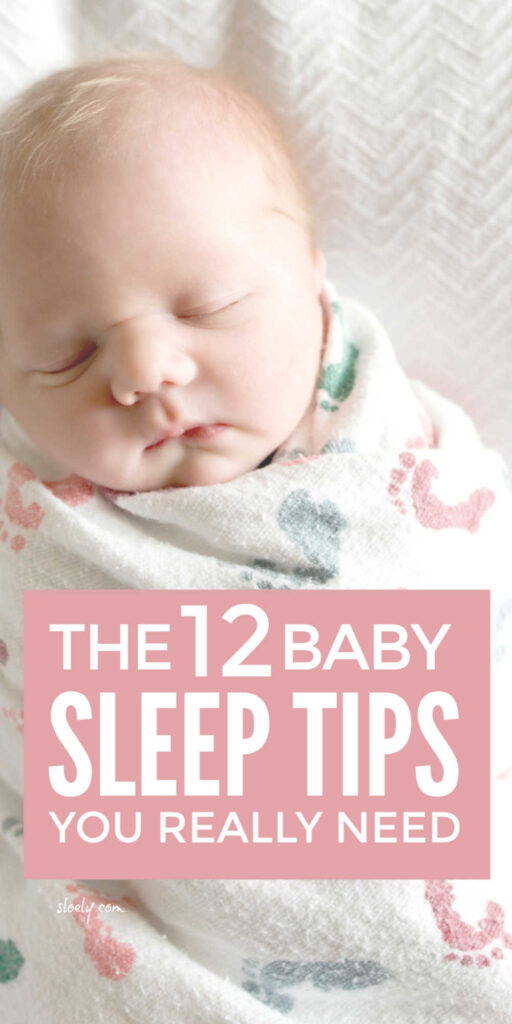 Photo: Newborn baby boy yawning by Marco Verch under Creative Commons 2.0
Photo: Newborn baby boy yawning by Marco Verch under Creative Commons 2.0






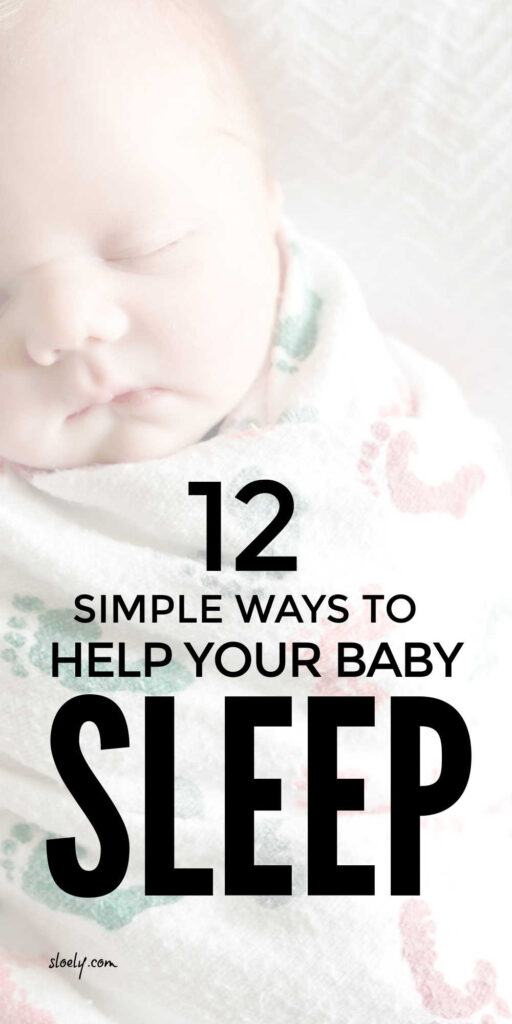
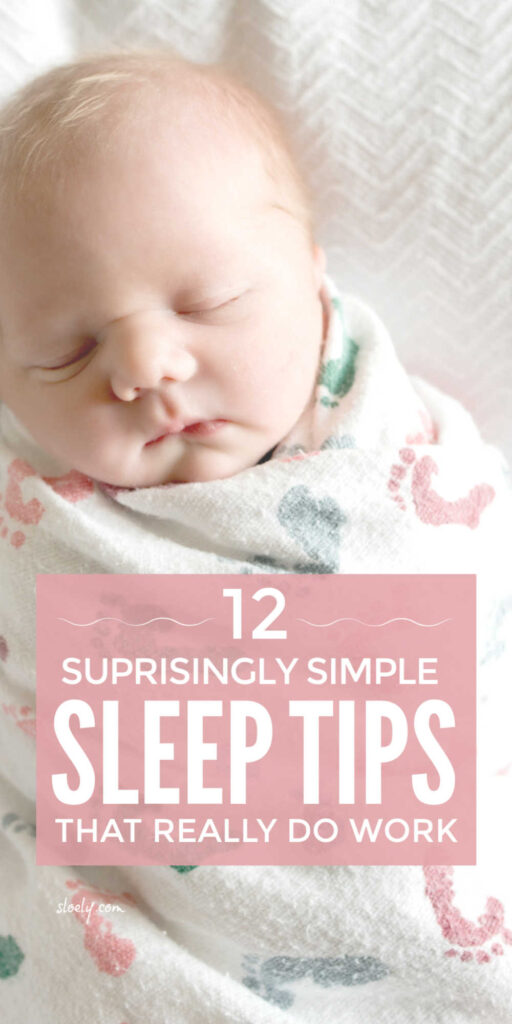
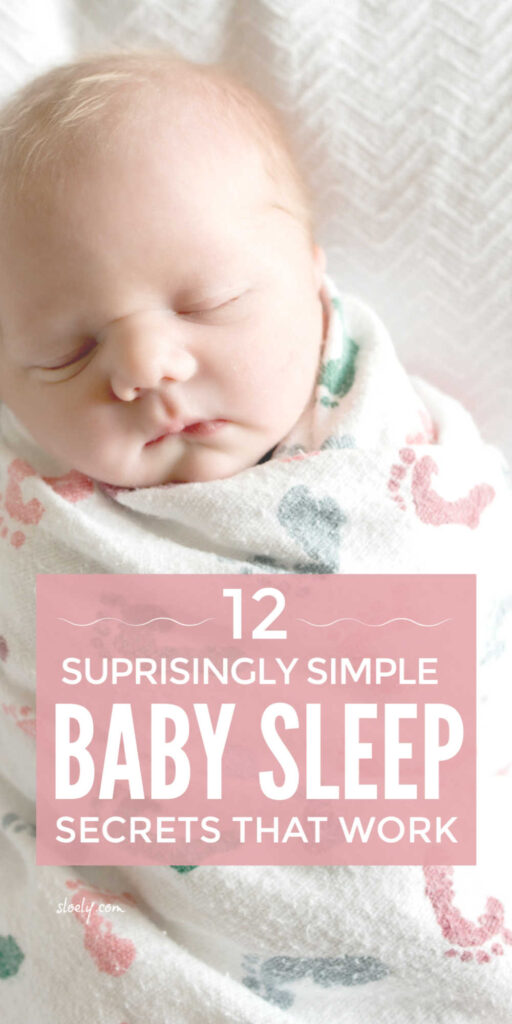
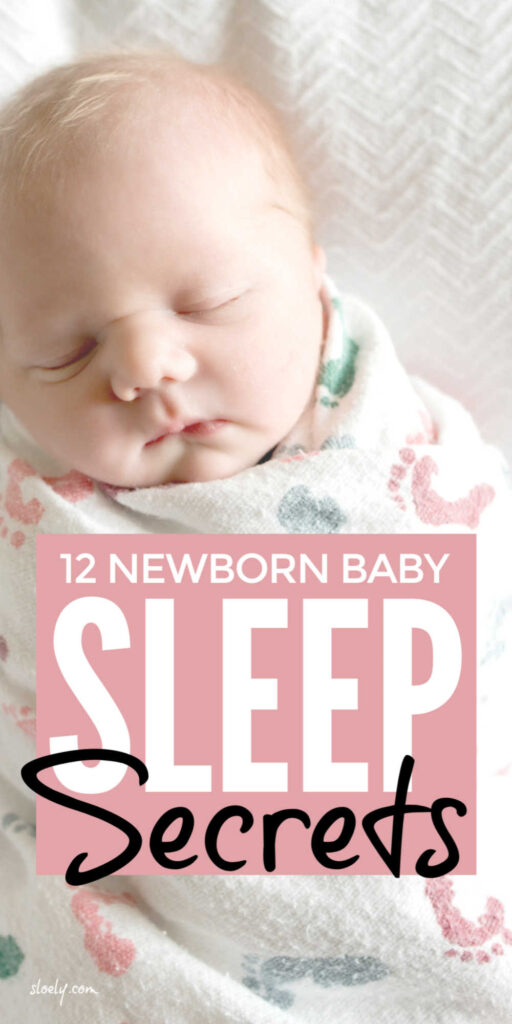





Leave a Reply